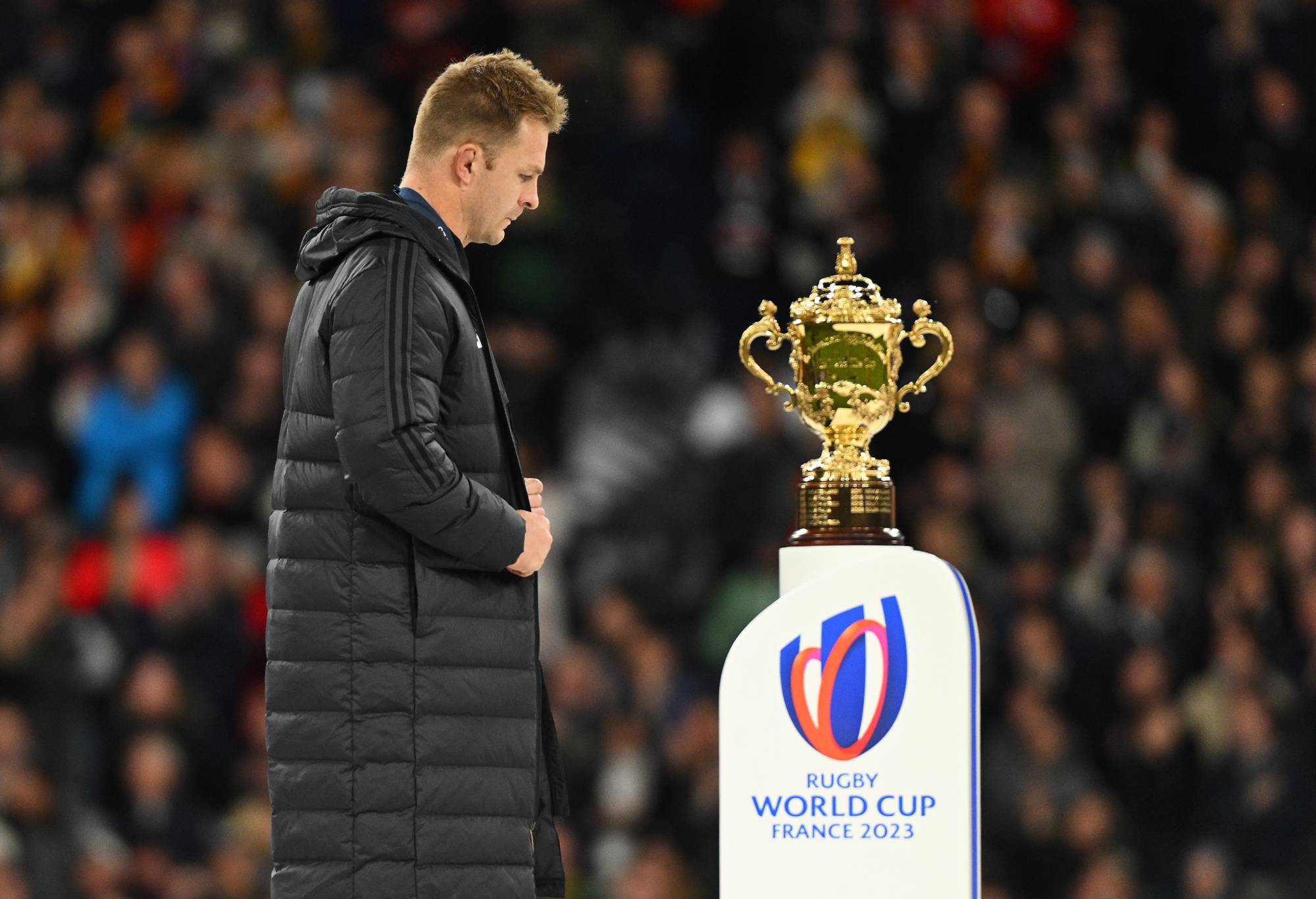What most people will remember Sam Cane for – and what they should instead

It didn’t come as that big a surprise when Sam Cane announced he was walking away from the All Blacks on Monday.
That’s not to say it’s not unprecedented – Cane is the first All Black captain in the professional era to cut his contract short, and one of the only ones ever to not get to go out on his own terms.
‘Own terms’ as in getting to announce the game or series that will be their last. In fact, the All Blacks are so historically stable in that regard that most senior players are afforded that anyway.
But this is different. Cane’s tenure was so inextricably tied to Ian Foster’s that as soon as the former All Black coach announced he wasn’t going to seek reappointment, the clock started ticking on Cane’s Test career as well.
Cane leaves a complicated and fascinating legacy. He didn’t come back with a World Cup like Richie McCaw, or a reputation as a transcendent player like Kieran Read. He didn’t get forced to retirement by injury like Sean Fitzpatrick, or sensationally dropped like Wayne Shelford.
Sam Cane walks past the The Webb Ellis Cup following the Rugby World Cup Final match between New Zealand and South Africa, where he was sent off. (Photo by David Ramos – World Rugby/World Rugby via Getty Images)
This was a slow burn, indeed it’ll continue to be one as he’s still available for selection till the end of this season. That’s plenty of time for the graphic designers to craft up all the ‘Thank You Sam’ posts for social media, but exactly when they’ll get scheduled is a good question.
Another one is whether Cane’s shoulder impacting Jesse Kriel’s head and being shown a red card in Paris last year be the last act he ever commits in an All Black jersey.
Odds are yes, although the season lined up for new coach Scott Robertson is a long journey at 14 Tests. The attrition rate will almost certainly test the traditionally strong loose forward depth, and Robertson will have the choice to roll the dice on an untested youngster in a key Test over a guy who have played 95 Tests and won a World Cup.
(Photo by Joe Allison/Getty Images)
Right now, though, Super Rugby Pacific has given Robertson more than enough to choose from. Number eight Hoskins Sotutu’s stirring return to form means that him, Ardie Savea at openside and any one of Ethan Blackadder, Brayden Iose, Dalton Papali’i or Cullen Grace would be a formidable trio in an area where the All Blacks have always been exceptionally strong anyway.
Peter Lakai and Billy Harmon are other options at openside, so you get the feeling Cane has seen the writing on the wall. But it’s the captaincy situation that goes hand in hand with his decision, or at least how Robertson sees things.
The most interesting aspect of this new All Black season is just that: it’s new, as in a clean slate after a tumultuous last World Cup cycle. It became obvious early on that Foster’s reign wasn’t going to be an assumed run of success that Steve Hansen had enjoyed (although he also very successfully papered over some big cracks that Foster ultimately had to deal with).
Cane was originally Hansen’s man, first picked to lead the All Blacks way back in 2015 in what seemed like a logical succession to McCaw and Read. Foster continued the plan, but by 2020 things were different. Cane had the ignominy of having to come off a winless Super Rugby Aotearoa season with the Chiefs, an instant association with failure and something that no All Black captain had really had to deal with. By the time the season began, we’d had to see Cane give nine post-match interviews in a row struggling to explain another loss.
Because really, this was and still is about perception. Cane is out of sight in Japan, so much so that the fact that he’d suffered a long-term injury didn’t come to light until weeks after it actually happened. Everyone in New Zealand has been focused on the aforementioned crop of youngsters in Super Rugby Pacific to really warrant too much interest in the story anyway.
(Photo by Phil Walter/Getty Images)
But the inescapable perception is that Cane was Foster’s man, the one sitting beside him when the All Blacks lost to Argentina for the first time, when they dropped a series to Ireland, when they were walloped for the worst loss in the team’s history last year against the Springboks.
He’s also the man who put in what was arguably the greatest individual performance at flanker since McCaw, when the All Blacks beat Ireland in an epic quarterfinal. A player who put his body on the line so much for the jersey he broke his neck in a Test. That in itself should be the first thing people remember Sam Cane for, however once he hangs up his boots for good and decides to give his honest side of the story, that may well be pretty memorable too.
